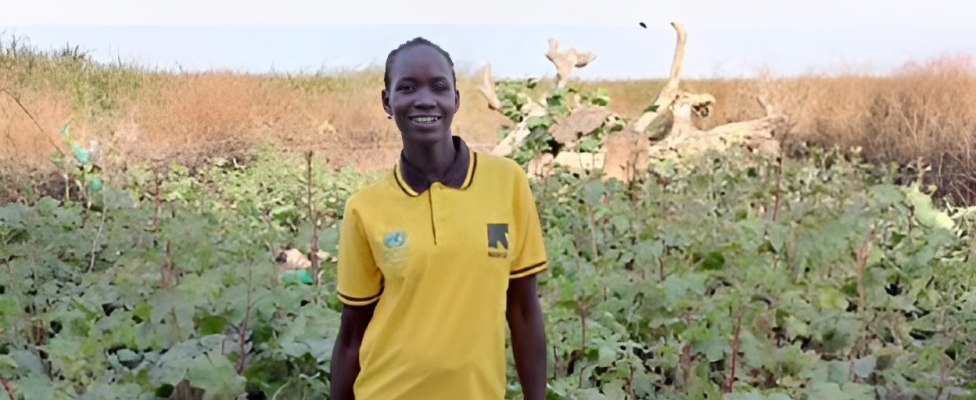Supporting long-term nutrition security for rural children
South Sudan | 2023 | CBPF
South Sudan, Ganyiel. “I decided to lead by example,” Tabitha says. As a member of the mother-to-mother support group in Ganyiel, she wants her neighbours to understand how her children benefit from her improved kitchen garden.
Not only do her kids get access to a more diverse diet – making them healthier, stronger, and less likely to suffer from malnutrition – but Tabitha is also earning extra income selling the extra food.
The peer learning approach, part of a project implemented by the International Rescue Committee in Ganyiel, has improved the nutrition of vulnerable children, and kickstarted improved household food production. It also represents a more sustainable approach to addressing malnutrition before children are in crisis.
The food security situation for many South Sudanese remains precarious, affecting two-thirds of the country’s people. Between April and July 2022, some 7.74 million people – or 63 per cent of the population – were estimated to be facing high levels of acute food insecurity (also officially described as Phase 3 or higher in the integrated Food Security Phase Classification, or IPC).
The project, supported by the South Sudan Humanitarian Fund, puts affected people at the center of the solution. Tabitha is one of eighty mothers who are part of the peer support programme. They are promoting breastfeeding and early child nutrition, and encouraging women to start kitchen gardens to improve their nutrition diversity, a key part of combatting childhood malnutrition.
The aim of this intervention is that people learn from each other, and are able to improve their livelihoods as well as longer-term nutrition outcomes. Tabitha has been able to grow enough food for her family, and earn extra money from selling the excess. “I make some income from the surplus,” she explains. Her garden has become a learning ground for other women in the neighbourhood.
